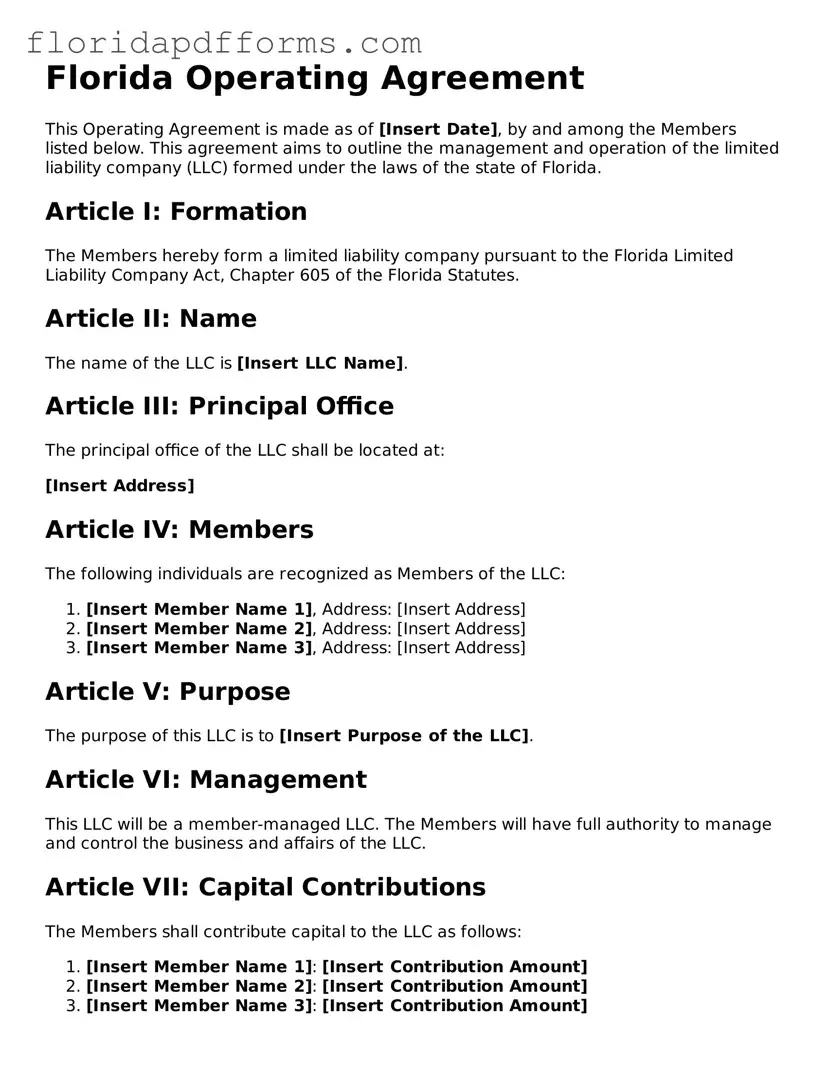Official Operating Agreement Template for Florida
The Florida Operating Agreement form is a crucial document for limited liability companies (LLCs) in Florida. It outlines the management structure, roles of members, and operational procedures of the business. Understanding this form is essential for ensuring smooth operations and compliance with state laws.
Ready to set up your LLC? Fill out the form by clicking the button below.
Modify Operating Agreement Now

Official Operating Agreement Template for Florida
Modify Operating Agreement Now

Modify Operating Agreement Now
or
⇓ Operating Agreement File
Don’t stop halfway through your form
Finish your Operating Agreement online with quick edits and instant download.